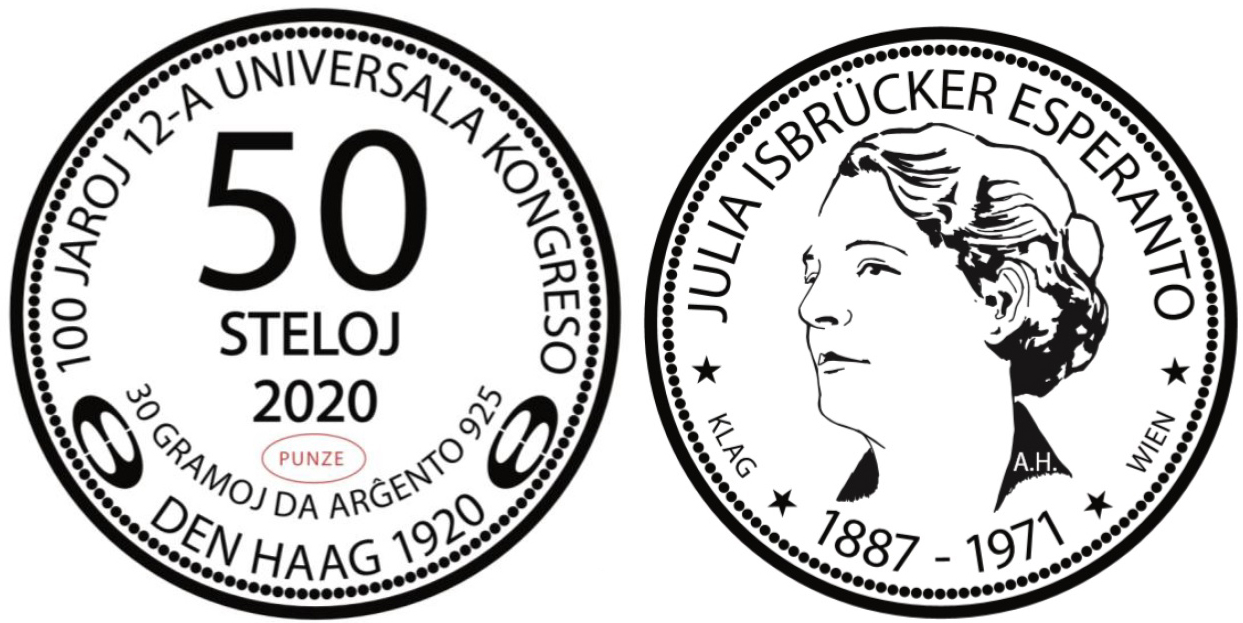Julia Isbrücker on:
[Wikipedia]
[Google]
[Amazon]
 Julia Catharina Isbrücker-Dirksen (22 September 1887 - 14 January 1971) was a Dutch esperantist, Honorary Member of the
Julia Catharina Isbrücker-Dirksen (22 September 1887 - 14 January 1971) was a Dutch esperantist, Honorary Member of the

 Julia Catharina Isbrücker-Dirksen (22 September 1887 - 14 January 1971) was a Dutch esperantist, Honorary Member of the
Julia Catharina Isbrücker-Dirksen (22 September 1887 - 14 January 1971) was a Dutch esperantist, Honorary Member of the Universal Esperanto Association
The Universal Esperanto Association ( eo, Universala Esperanto-Asocio, UEA), also known as the World Esperanto Association, is the largest international organization of Esperanto speakers, with 5501 individual members in 121 countries and 9215 th ...
(UEA), member of the International Central Committee and of the examination committee, member of the Soroptimist Club
Soroptimist International (SI) is a global volunteer service organization for women with nearly 72,000 members in 121 countries worldwide. According to Soroptimist.org, their mission statement says that, "Soroptimist is a global volunteer organiza ...
, president of the group in The Hague and wife of the vice-president of UEA Johannes Rijk Gerardus Isbrücker.
Career
Isbrücker was an esperantist from 1909, soon after she wrote an Esperanto textbook with her brother. The development of the movement benefited from her initiative to invite the 12th Universal Congress in 1920 to the Hague, as at that time afterWorld War I
World War I (28 July 1914 11 November 1918), often abbreviated as WWI, was one of the deadliest global conflicts in history. Belligerents included much of Europe, the Russian Empire, the United States, and the Ottoman Empire, with fightin ...
it was difficult to find a suitable city to host the Universal Congress. She organized the International Interfaith Conference in the Hague in 1928, founded with Andreo Cseh
Andreo Cseh (born András Cseh; 12 September 1895, in Marosludas, Hungary – 9 March 1979, in the Hague, Netherlands) was a Hungarian/Dutch Roman Catholic priest and Esperantist known for inventing the Cseh method of Esperanto instruction.
Bi ...
the International Cseh Institute in 1930 (later the International Esperanto Institute). Within its framework she organized courses, seminars, lecture evenings and other events.
In 1931 the mayor of Arnhem
Arnhem ( or ; german: Arnheim; South Guelderish: ''Èrnem'') is a city and municipality situated in the eastern part of the Netherlands about 55 km south east of Utrecht. It is the capital of the province of Gelderland, located on both banks of ...
(Netherlands) provided a large house with a park, where the institute founded the Esperanto House. Thanks to Isbrücker it has become an international Esperanto Center, where a variety of programs, courses, meetings and conferences, most often international, have taken place on a regular basis.
Isbrücker was also a member of an examination committee, a member of the International Central Committee (ICK), president of the Hague Esperanto club "Fine ili venkos", she led courses and gave lectures in various non-Esperanto circles. In 1939 she became secretary of a newly founded Dutch Committee for the practical application of Esperanto, whose members were the mayor of The Hague and directors of a bank, a tourist office, PTT, Philips
Koninklijke Philips N.V. (), commonly shortened to Philips, is a Dutch multinational conglomerate corporation that was founded in Eindhoven in 1891. Since 1997, it has been mostly headquartered in Amsterdam, though the Benelux headquarters i ...
and KLM
KLM Royal Dutch Airlines, legally ''Koninklijke Luchtvaart Maatschappij N.V.'' (literal translation: Royal Aviation Company Plc.), is the flag carrier airline of the Netherlands. KLM is headquartered in Amstelveen, with its hub at nearby Amste ...
.
After the World War II
World War II or the Second World War, often abbreviated as WWII or WW2, was a world war that lasted from 1939 to 1945. It involved the vast majority of the world's countries—including all of the great powers—forming two opposin ...
, when the house in Arnhem was destroyed, Isbrücker devoted herself to a new business. With Andreo Cseh she founded the Universal League, a world federation based on the work of Clarence K. Streit. The official language was Esperanto, but non-Esperantists could also join. Since then she represented Universal League in international world federal congresses and conferences. She created a favorable attitude towards Esperanto in a wide range of circles.
In the meantime she wrote and translated extensively, primarily for the newspaper ''The Practice'', which she collaborated with since its founding in 1932 and which became the official organ of the Universal League. She also translated to Esperanto, among others the work of Rico Bulthuis ''The Other Past'' and the work of Martin Kojc, ''The textbook of life''.
Works
* Report of the Constituent Assembly of the Peoples (1951) * Vertaalde Esperanto exam tasks (1931) * Wereldvrede en Esperanto (En: Jubileumboek 1926–1931) * Esperanto exam tasks (1922) * Esperanto exam tasks for diploma A and B with translation (1934) * Vertaalde Esperanto-examinationopgaven (1923) * Julia Isbrücker Pioniro de Esperanto, Vienna, 2021 (Esperanto and English). ISBN 978 3 903247 36 9Honors
In 2020 a silver medal with the portrait of Julia Isbrücker was issued by Walter Klag, Austria, in the shape of a 50-star coin. The coin was designed by Helmut Andexlinger, the chief designer ofMünze Österreich
The Austrian Mint (german: Münze Österreich) is located in Vienna and is responsible for minting Austrian coins. Since 1989 it has been a public limited company (''Aktiengesellschaft'') and a subsidiary of Austria's central bank Oesterreichische ...
(Austria's state mint), 2020. Julia Isbrücker Pioniro de Esperanto, Vienna, 2021 (Esperanto and English). ISBN 978 3 903247 36 9

References
{{DEFAULTSORT:Isbrücker, Julia 1887 births 1971 deaths Dutch women scientists Dutch Esperantists